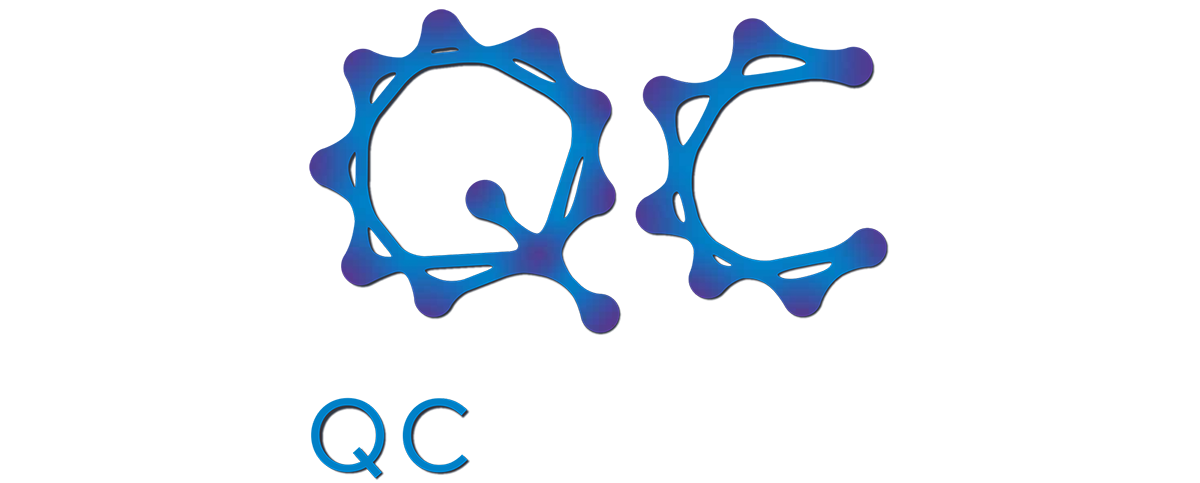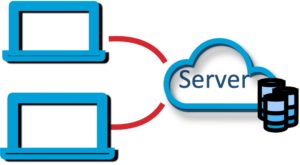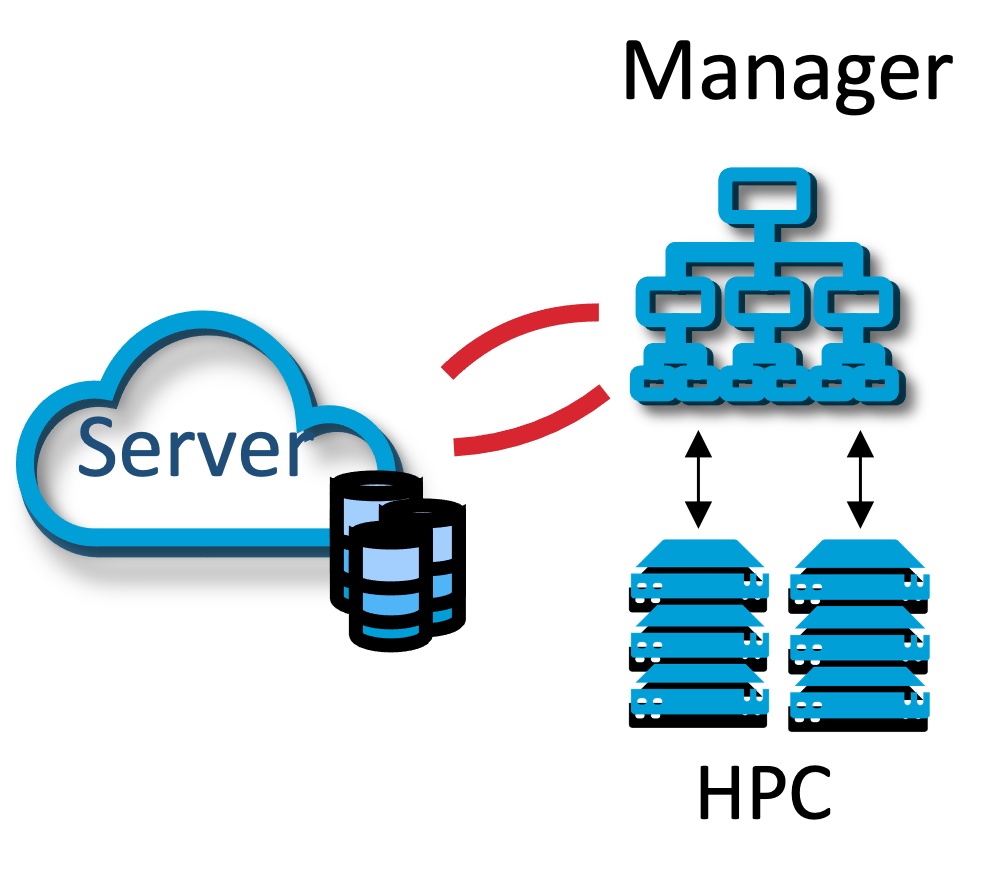
QCArchive
Large-scale computation and data management
The goal of QCArchive is to make the acquisition and organization of quantum chemistry data easier for users who need large amounts of data.
When running enormous numbers of computations, several pain points arise that QCArchive aims to solve. With QCArchive, a user can submit computations, which are then supervised by the server. If spurious errors arise, computations can be automatically restarted without input required from the user. More serious errors are reported to the user, where they are able to take another action.manually restarting the computation or for errors and restarted In particular, the project sets out to solve the pain points above. In addition, submitting the same calculation twice does not lead to duplicate calculations, reducing clutter and waste from many identical calculations.
The results of the calculations are accessible via the web API and a python package (QCPortal) which the user can interface with common data analysis packages such as Pandas and Matplotlib.
Subprojects
The QCArchive project tackles the complexity and pain points in large quantum chemistry simulation campaigns by means of a few modular projects. Each project can be used independently of the others. In particular, QCSchema,
QCElemental, and QCEngine do not require using QCFractal or QCPortal.
QCSchema/QCElemental
The QCSchema project defines a common input & output schema for quantum chemistry computations. This abstracts the details of preparing inputs and consuming outputs of a computation and defines common data types used for calculations such as molecules.
QCSchema is strictly a JSON schema, while QCElemental is a python implementation of the schema. QCElemental also contains useful features, such as parsing many different molecule formats and a utility for converting units.
QCEngine

QCEngine is responsible for actually running a computation. It takes in a QCSchema input, and generates a QCSchema output by running the selected quantum chemistry program. This module allows users to run different computational chemistry programs without requiring them to learn the details of preparing inputs and running computations with each individual code.
QCFractal/QCPortal
QCFractal is a database and web API for submitting and storing computations, and organizing, and sharing data. Under the hood, QCFractal is taking in user input and storing it in a database, where they are placed in a queue. Distributed workers can then claim tasks from this queue, and return the results of the computation.
Users can track the progress of a large number of computations, restart errored calculations, and otherwise manage these computations.
Once the computations are completed, users can then programmatically obtain and analyze the results of these computations.
Relatively homogeneous calculations with common methods, basis sets, or other parameters, can be organized into datasets, which allow for greater control and abstraction over large numbers of calculations (i.e., submitting and managing these computations as a group rather than individually).
QCPortal is a python package for interacting with a QCFractal server. While it is possible to use a QCFractal server
directly via the web API, it is often much easier for users to use this package.
Compute Managers

Managers are responsible for claiming tasks from a QCFractal server, running them, and uploading the results back to the server. Managers work with a pull-based model, where the QCFractal server keeps minimal tracking of the managers. These managers can be run on anything from a laptop to an HPC clusters.
QCArchive is intended for users who are familiar with quantum chemistry – and to some extent quantum chemistry software – and would like to automate calculations to a large degree, and/or to integrate these calculations into an existing workflow.
You can download this datasheet here:
For more information about QCArchive, refer to links below:
